WELLBEING
Check out Free Workshops & Webinars this October & November!

WELLBEING
Check out Free Workshops & Webinars this October & November!
Students can access wellbeing via an online booking form for Wellbeing and health related matters.
Student Wellbeing Check In Request Form
Parents/ carers can access supports from Wellbeing for their young person via the Administration Office.


Welcome to Term 4 and one week down, how are we here already? A very busy term ahead that will wrap up very quickly especially for our senior students. We hope everyone had a lovely break and is feeling refreshed.
We ended last term with a R U OK? day treasure hunt where students had to hunt around the school for the four steps to checking in. Once they had collected all four tokens they could present them at wellbeing for a small prize. This newsletter will look at R U OK? day and how to start the conversation.
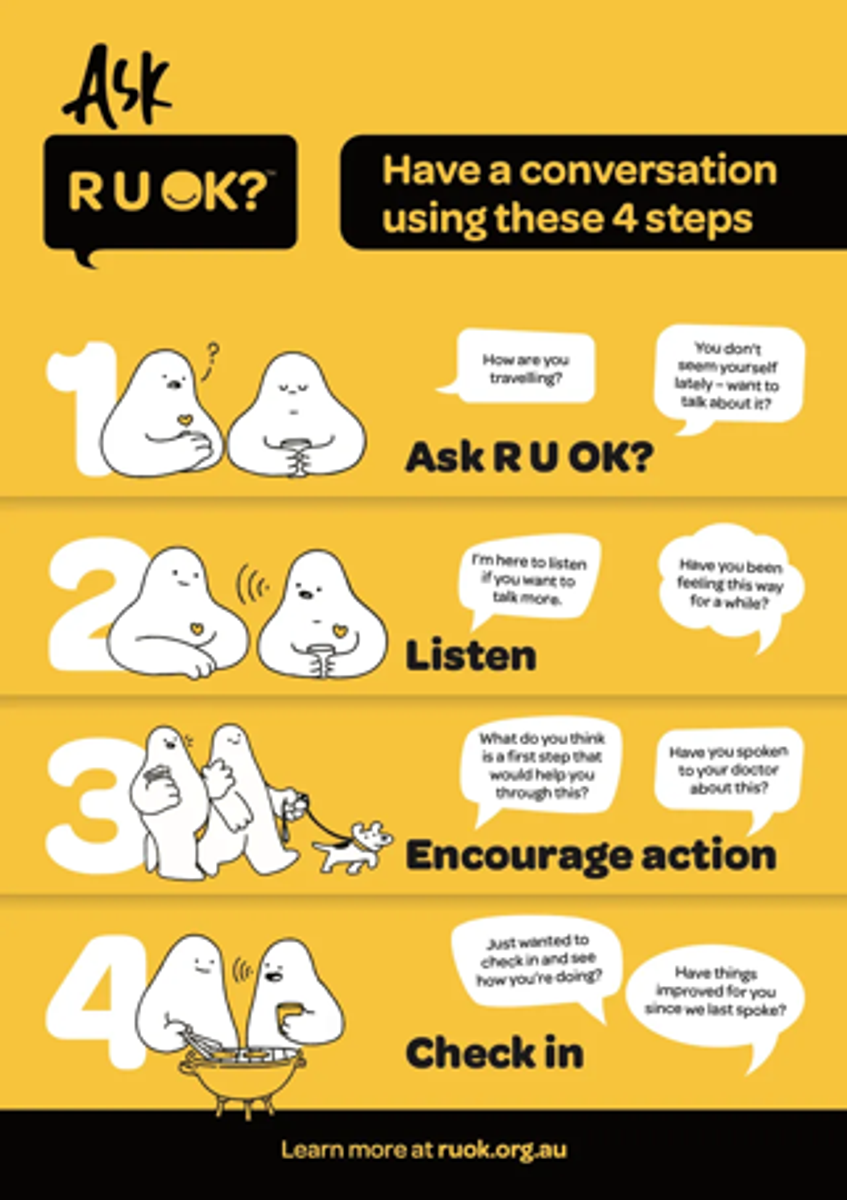
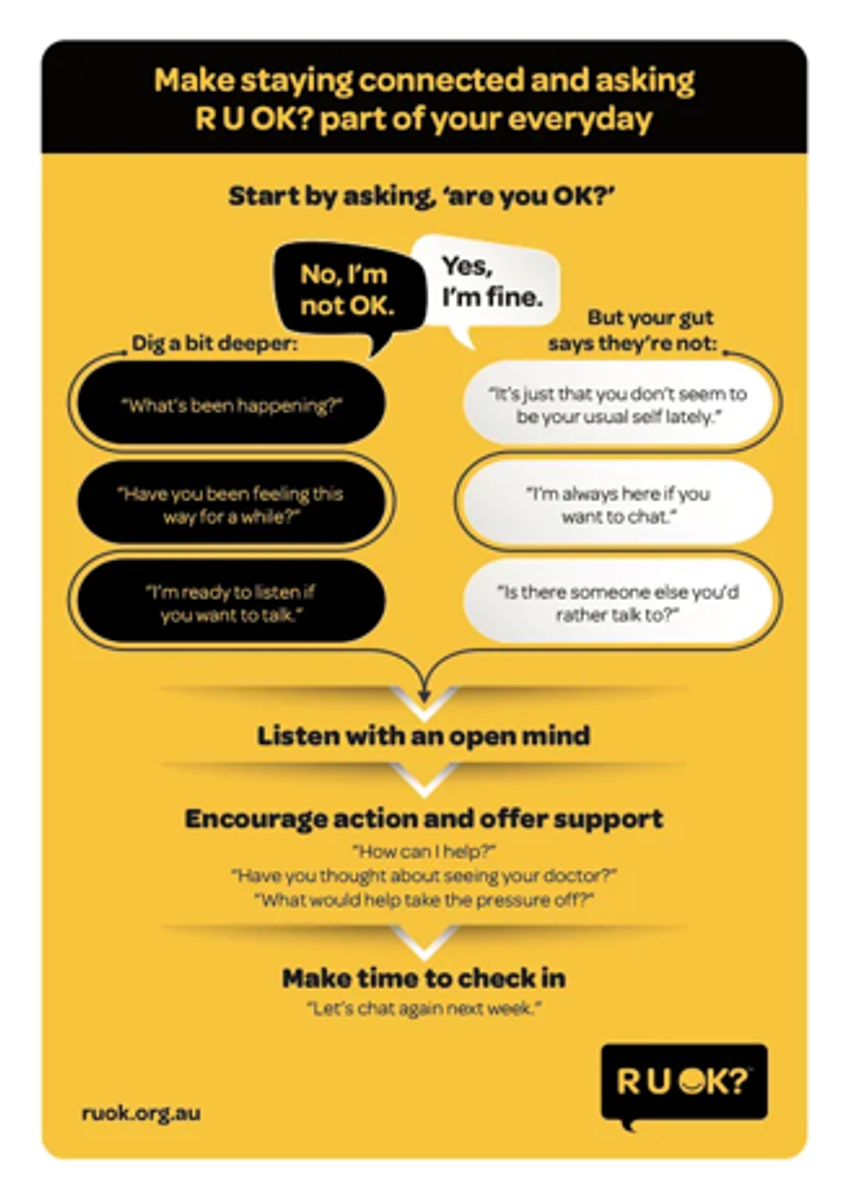
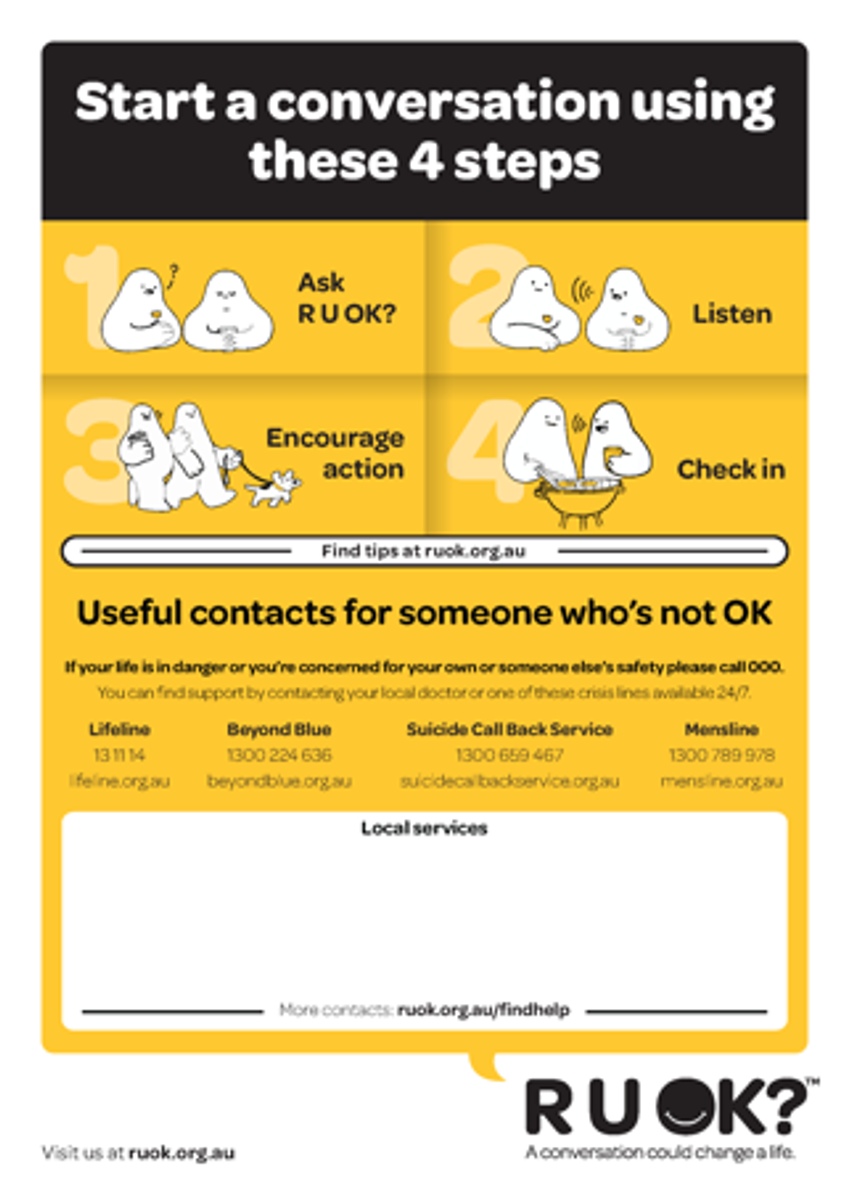



Got a feeling that someone you know or care about isn’t behaving as they normally would? Perhaps they seem out of sorts? More agitated or withdrawn? Or they’re just not themselves. Trust your gut instinct and act on it. Learn more about the signs and when it’s time to ask R U OK?
By starting a conversation and commenting on changes you’ve noticed, you could help a family member, friend or workmate open up. If they say they are not OK, you can follow the conversations steps to show them they’re supported and help them find strategies to better manage the load. If they are OK, that person will know you’re someone who cares enough to ask.
Before you ask?
Before you can look out for others, you need to look out for yourself. And that’s OK. If you’re not in the right headspace or you don’t think you’re the right person to have the conversations, try to think of someone else in their support network who could talk to them.
To help you decide whether you’re ready to start a meaningful conversation, ask yourself:


AM I READY?
Am I in a good headspace? Am I willing to genuinely listen? Can I give as much time as needed?
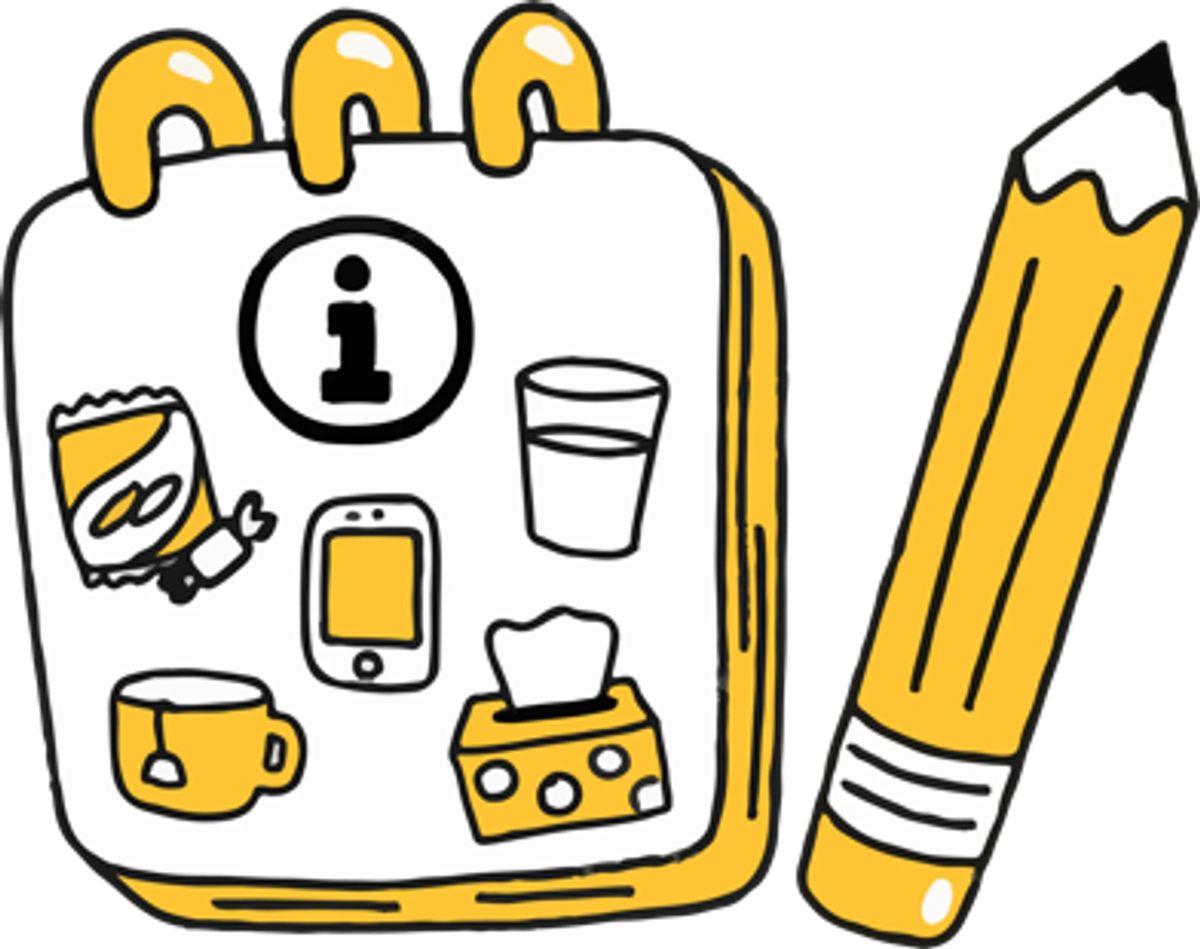

AM I PREPARED?
Do I understand that if I ask how someone’s going, the answer could be: “No, I’m not”?
Do I understand that I cant “fix” someone’s problems?
Do I accept that they might not be ready to talk? Or they might not want to talk to me?


PICKED MY MOMENT?
Have I chosen somewhere relatively private and comfy?
Have I figured out a time that will be good for them to chat?
Have I made sure I have enough time to chat properly?
TIPS ON HOW TO ASK


1.ASK
Be relaxed, friendly and concerned in your approach.
Help them open up by asking questions like "How are you going?" or "What’s been happening?"
Mention specific things that have made you concerned for them, like "You seem less chatty than usual. How are you going?"
IF
If they don’t want to talk, don’t criticise them.
Tell them you’re still concerned about changes in their behaviour and you care about them.
Avoid a confrontation.
You could say: “Please call me if you ever want to chat” or “Is there someone else you’d rather talk to?”
2. LISTEN WITH AN OPEN MIND
Take what they say seriously and don't interrupt or rush the conversation.
Don’t judge their experiences or reactions but acknowledge that things seem tough for them.
If they need time to think, sit patiently with the silence.
Encourage them to explain: "How are you feeling about that?" or "How long have you felt that way?"
Show that you've listened by repeating back what you’ve heard (in your own words) and ask if you have understood them properly.
3. ENCOURAGE ACTION
Ask: “What have you done in the past to manage similar situations?”
Ask: “How would you like me to support you?"
Ask: “What’s something you can do for yourself right now? Something that’s enjoyable or relaxing?”
You could say: "When I was going through a difficult time, I tried this... You might find it useful too."
If they've been feeling really down for more than 2 weeks, encourage them to see a health professional. You could say, "It might be useful to link in with someone who can support you. I'm happy to assist you to find the right person to talk to.”
Be positive about the role of professionals in getting through tough times.
IF THEY NEED EXPERT HELP
Some conversations are too big for family and friends to take on alone. If someone’s been really low for more than 2 weeks - or is at risk - please contact a professional as soon as you can. Further information on expert help can be found via the below link.
https://www.ruok.org.au/findhelp
4. CHECK IN
Pop a reminder in your diary to call them in a couple of weeks. If they're really struggling, follow up with them sooner.
You could say: "I've been thinking of you and wanted to know how you've been going since we last chatted."
Ask if they've found a better way to manage the situation. If they haven't done anything, don't judge them. They might just need someone to listen to them for the moment.
Stay in touch and be there for them. Genuine care and concern can make a real difference.
WORRIED SOMEONE MAY BE SUICIDAL
Contact Lifeline on 131 114 or SMS 0477 131 114 for crisis support
If life is in danger call 000
Throughout the second half of Term 3 The Shed students have been working with the expertise of community mentor Bev to make mosaics. With the assistance of our other mentors Ann & Cindy students have created these beautiful pieces with one finished project and the others with only the grout to go. This has definitely been the students favourite project this year and they should be very proud of their creations.

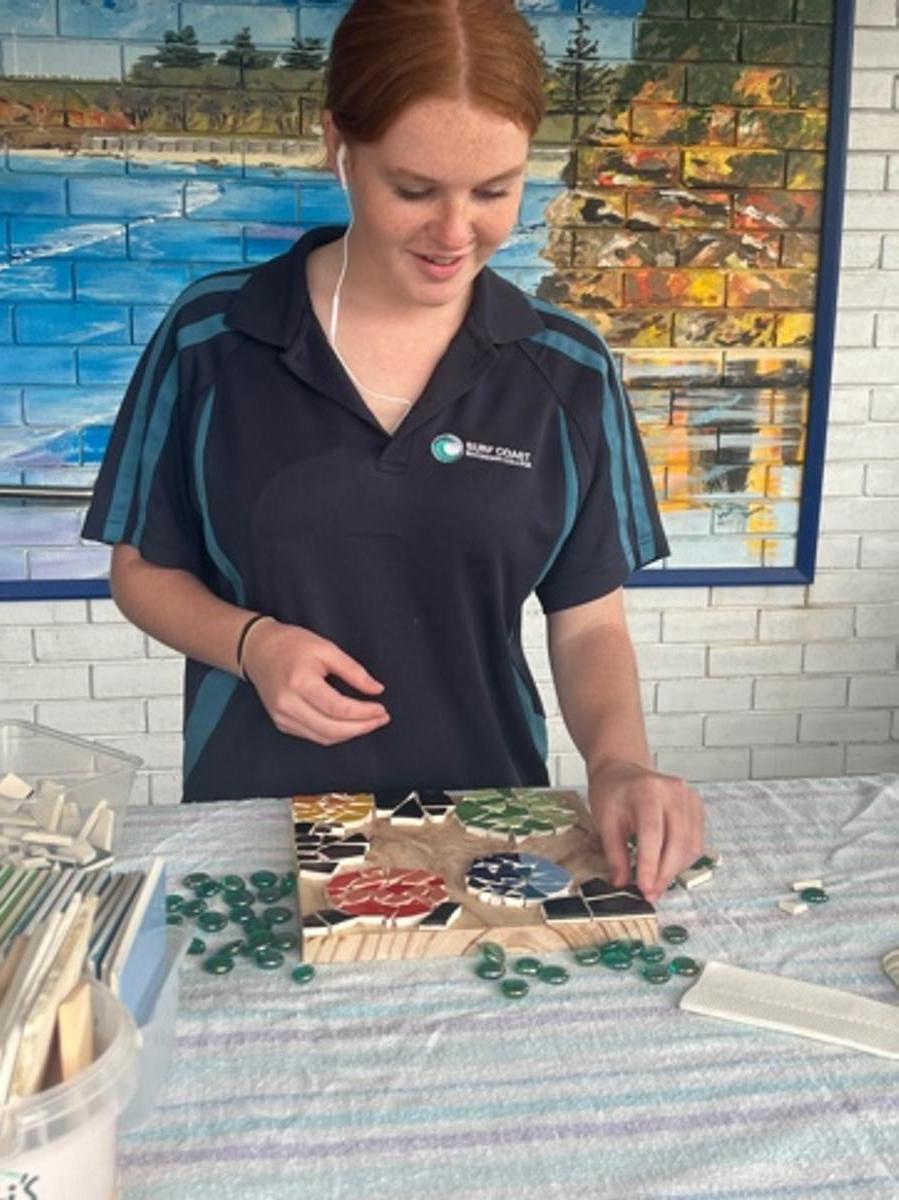




As always reach out if you need further support – The Wellbeing Team Michelle, Jazz, Sarah and Rachel.




Headspace Geelong has been hosting Mate Space sessions in Torquay.
These male only sessions are held inside the Youth Centre at KMCC and runs from 4pm-6pm.





